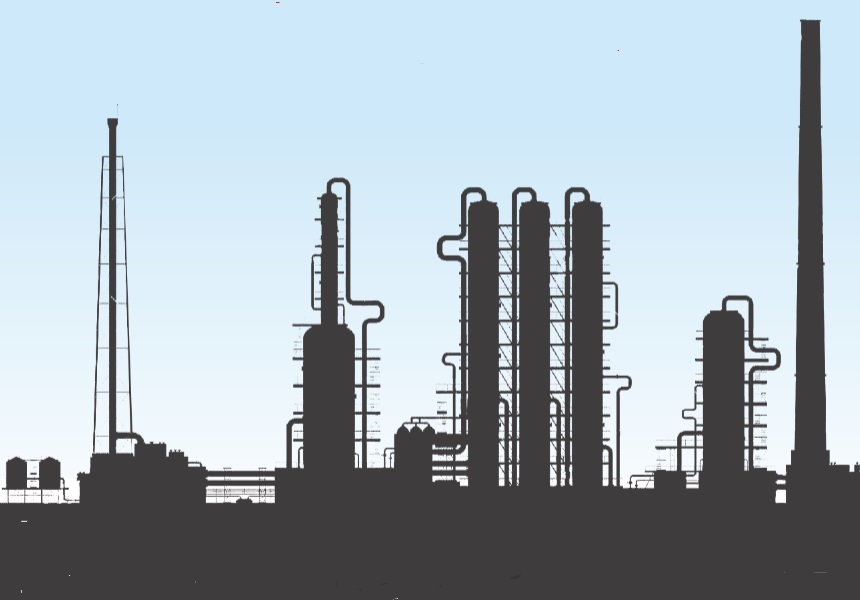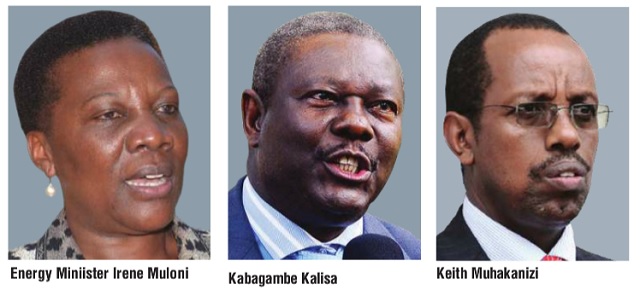
American to build refinery? Deal could be blow to sanction-strapped Russians
Technocrats at the Energy Ministry and the Ministry of Finance who are working on the country’s pet project, the US$4 billion oil refinery, have learnt to stay cool under pressure. Behind their cool fronts, however, they are working in overdrive since the Russian company, RT–Global Resources, which claimed to be ready to pump US$ 1 billion into the refinery project and organize a consortium to fund up to 60% of the cost pulled out of the deal.
Their latest assignment is to find about US$500 million dollars as kick-start capital for the construction of the oil refinery ordered by President Yoweri Museveni over the head of oil production firms, CNOON, Total, and Tullow.
Externally, the bureaucrats look bullish.
“The only concern for us now is whether the officials at the Finance Ministry can get us at least $500 million to kick start the project,” an official at the Energy Ministry told The Independent on the sidelines of a recent oil event in Kampala.
Expected to cost about $ 4 billion, the refinery is seen as one of the critical oil related infrastructure, which all together is estimated to cost over $ 20 billion.

Sourcing this money is particularly problematic at a time when the government appears cash-strapped, the economy is struggling, and a major donor-the World Bank has suspended trillions in new loan money. The Chinese who previously have been funding such major projects also appear reluctant to pump more money into the Uganda economy because debt is piling, and they have concerns about its sustainability.
Now, in a major twist of events, an American company is now one of those looking to invest in the oil refinery, The Independent has learned from informed sources.
The insider sources have intimated to The Independent that some ten companies have expressed interest in investing in the refinery. These include Japanese, American and Chinese companies. It is amongst these companies that government hopes to pick the company that will invest 30 percent into the refinery project.
The entry of the as yet unidentified America oil company appears to confirm what military insiders have long told The Independent; that the oil deals between Uganda and the Russians had become a big concern for the Americans.
“They tried to jeopardise this (refinery) deal by all means because of the involvement of the Russians,” one official said, “that is why Museveni has been trying to get an American company involved in the sector too. In the hope that once they are involved, they won’t jeopardise things.”
The official intimated that this might have been the reason some in government circles were anxious to have a company owned by an American into oil exploration.
Indeed, one of the American companies which expressed interest, didn’t have money but was picked amongst the six that government is negotiating with over new exploration licenses. The Independent could not comfirm whether the official was referring to Clint Energy.
Indeed there appears to be a buzz around the Uganda-American relations. In September, the U.S. Department of Defence announced it would supply the Uganda army with five Huey II helicopters sourced from the American firm, Bell Helicopter. The deal was valued at US$79 million.
This October, the media in Uganda has also been awash with a congratulatory message sent to Museveni by U.S. Secretary of State John Kerry on behalf of U.S. President Barack Obama the occasion of the 54th Independence Anniversary celebrations.
In an unusual move, the U.S praised Museveni on his human rights record and offered a promise of more support.
But it could be too early to conclude that the apparent political rapprochement between Kampala and Washington will lead to blue skies on the business front.
Previous attempts by America to work on big projects with Museveni, including the construction of the Bujagali Hydropower Dam, have floundered over allegations of corruption and stringent World Bank conditionalities.
But the timing could help. Although the three major oil companies—Tullow, CNOOC and Total—are expected to inject into the sector some $ 8 – 10 billion. They are only concerned with financing the $3.5 billion crude oil pipeline, which will go through the Tanzanian port of Tanga following a deal reached early this year between the oil companies, Uganda, and Tanzania.
Tussling to reach that deal lasted over two years and was only resolved in February 2014 when a Memorandum of Understanding was signed. It allowed the oil companies to focus on other infrastructure while the government built the refinery. They agreed on a small refinery of 30,000 b/d as a compromise to expand to 60,000 b/d or even bigger. But there was a catch. The refinery would have the right of first call on oil produced. Effectively, this meant there would be no oil production without a refinery. Now the government, once again, appears stuck in this sticky oil business.
On the opposite side is a growing wave of critics of the refinery. This group says a refinery will become another worthless but expensive liability on the government. They say, even before global oil prices fell, refineries world over were already struggling. The situation seems to have only gotten worse, critics say, and a refinery in Uganda cannot be economically viable.
Government officials, led by President Yoweri Museveni, dismiss any critics. A senior petroleum official, Enerst Rubondo, who now heads the Petroleum Regulatory Authority (PRA), has for a long time defended as “a strategic decision to construct a refinery”. Apart from creating jobs, he has said the refinery would save Uganda a yearly petroleum products import bill between US$ 1 billion (2.5 trillion).
 The Independent Uganda: You get the Truth we Pay the Price
The Independent Uganda: You get the Truth we Pay the Price





